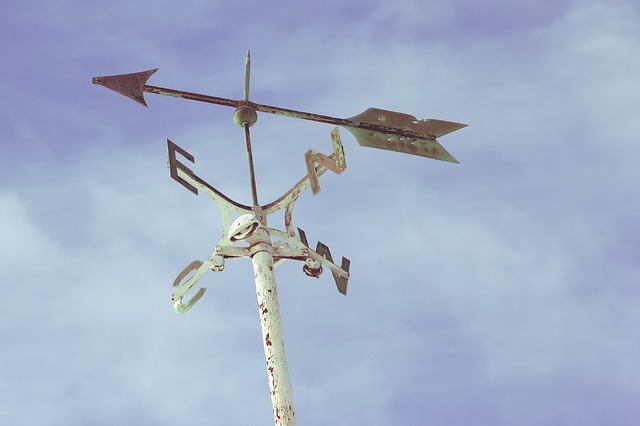Merkel, Trump and defining the new ‘West’
Posted By David Ritchie on June 9, 2017 @ 06:00

Angela Merkel’s frustration, clearly aimed at the United States and Britain, boiled over in her extraordinary speech in Munich [1] late last month.
‘The times in which we can fully count on others are to some extent over, as I have experienced in the past few days’, the German chancellor said. ‘We Europeans’, she added, ‘have to take our destiny into our own hands.’ And, to prove the point, she repeated the line in Berlin a day or so later. Merkel is a cautious and careful leader and a strong trans-Atlanticist, as she has reaffirmed since the G7 summit in Sicily. The fact she made such a comment is a reflection of the depth of her displeasure and concern.
The tone of the lecture President Trump gave fellow NATO leaders in Brussels on the need to lift their defence expenditure was bad enough, although it could scarcely have come as a surprise to other NATO countries. And Trump is right on that point: the European NATO members need to improve their game significantly. His failure to reaffirm NATO’s mutual defence commitments, however, sent a terrible signal to Europe.
The President’s stance at the recent G7 meeting in Sicily [2] on issues such as climate change and trade simply added to this sense of exasperation. Merkel described the US position on climate change as ‘unzufriedenstellend—unsatisfactory’. Trump’s decision since to withdraw from the Paris climate change agreement can only have reinforced this. His various egregious comments about Germany being ‘bad, very bad’ for its success in exporting cars to the US also didn’t go down well. The German reaction was to advise the Americans to make better cars.
Apart from reacting to Trump’s poor performance in Brussels and Sicily, three serious worries underlie Merkel’s comments.
First, these are deeply uncertain times for Germany and for Europe. Brexit has provided the greatest, but not the only shock to the framework that has brought stability to Europe since World War 2. The British decision to turn its back on membership of the EU has thrown all the cards in the air and there’s no way of knowing what the new Europe will look like.
Embedding Germany in Europe (especially a better relationship with France—the Germans must be hugely relieved to have Macron as President) has been a fundamental plank of the global security framework and of German foreign and security policy. So the Chancellor’s comments must also be seen as a wake-up call for the other Europeans, a heartfelt plea from a convinced European in favour of a stronger Europe.
Second, and more fundamentally, Europeans are starting to doubt whether the values and objectives that seemed to define ‘the West’ are still shared by key Western players. Britain’s decision to leave the EU and Trump’s ‘America first’ policy—on show for all to see in Brussels and Sicily—have been especially concerning in this regard.
Protestations from some British media commentators that it’s withdrawing from the EU but will remain part of NATO and therefore of the ‘Western’ security alliance miss the point: the European project has been as much about security as about economics. And, for the Chancellor and others, it’s becoming clear that the Trump administration does not seem to share a commitment to some of the things the Europeans hold dear, including international agreements on issues like climate change. ‘America first’, the Europeans feel, is increasingly being shown to mean ‘America only’. ‘Pittsburgh not Paris’, as the president’s put it so pithily.
And, finally, it’s worth remembering that Merkel’s in the middle of a serious election campaign, with the federal poll due in Germany in September. So her public comments must be seen against that background, especially as a reaction to the extreme nervousness of the German electorate about all these uncertainties—and others.
A ZDF (German television) poll in October 2016 had 82 per cent of Germans assessing the US-German relationship as good. A similar ZDF poll in June 2017 [3] shows this figure falling to just 29 per cent, with 79 per cent of those polled doubting that the US under Trump is now a reliable security partner for Europe. As a response to this, 89 per cent want a stronger and more united Europe.
Merkel is very likely to be returned as chancellor. Polling in Germany suggests her CDU/CSU coalition is pulling ahead of the opposition Social Democrats (SPD)—38 per cent to the SPD’s 27 per cent, according to a 3 June Emnid poll [4]—and Merkel’s personal popularity is way ahead of the SPD’s chancellor-candidate, Martin Schultz. The CDU has done remarkably well in three German state elections this year.
All of this explains why the Chancellor said what she did. That she did so is nevertheless remarkable. The Europeans are feeling that the world has turned upside down and President Trump’s recent visit and the Brexit decision have just reinforced this sense that they’re on their own. Ironically, getting the Germans to accept responsibility and have a greater role internationally, commensurate with their political and economic weight, is something we’ve all wanted for some time.
Some commentators have speculated that Merkel might now emerge as the de facto leader of whatever ‘West’ is produced after the current renovations. She, no doubt, is horrified by such suggestions. But hers is a voice well worth listening to.
Article printed from The Strategist: https://www.aspistrategist.org.au
URL to article: https://www.aspistrategist.org.au/merkel-trump-defining-new-west/
URLs in this post:
[1] extraordinary speech in Munich: https://www.theguardian.com/world/2017/may/28/merkel-says-eu-cannot-completely-rely-on-us-and-britain-any-more-g7-talks
[2] stance at the recent G7 meeting in Sicily: https://www.nytimes.com/2017/05/26/world/europe/paris-climate-agreement-trump-g7.html?action=click&contentCollection=Europe&module=RelatedCoverage®ion=Marginalia&pgtype=article
[3] ZDF poll in June 2017: https://www.welt.de/politik/ausland/article165186676/Deutsche-sehen-Beziehungen-zu-USA-am-Tiefpunkt.html
[4] 3 June Emnid poll: http://www.wahlrecht.de/umfragen/
Click here to print.